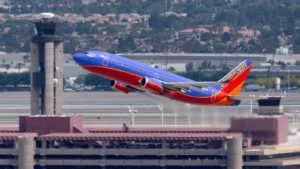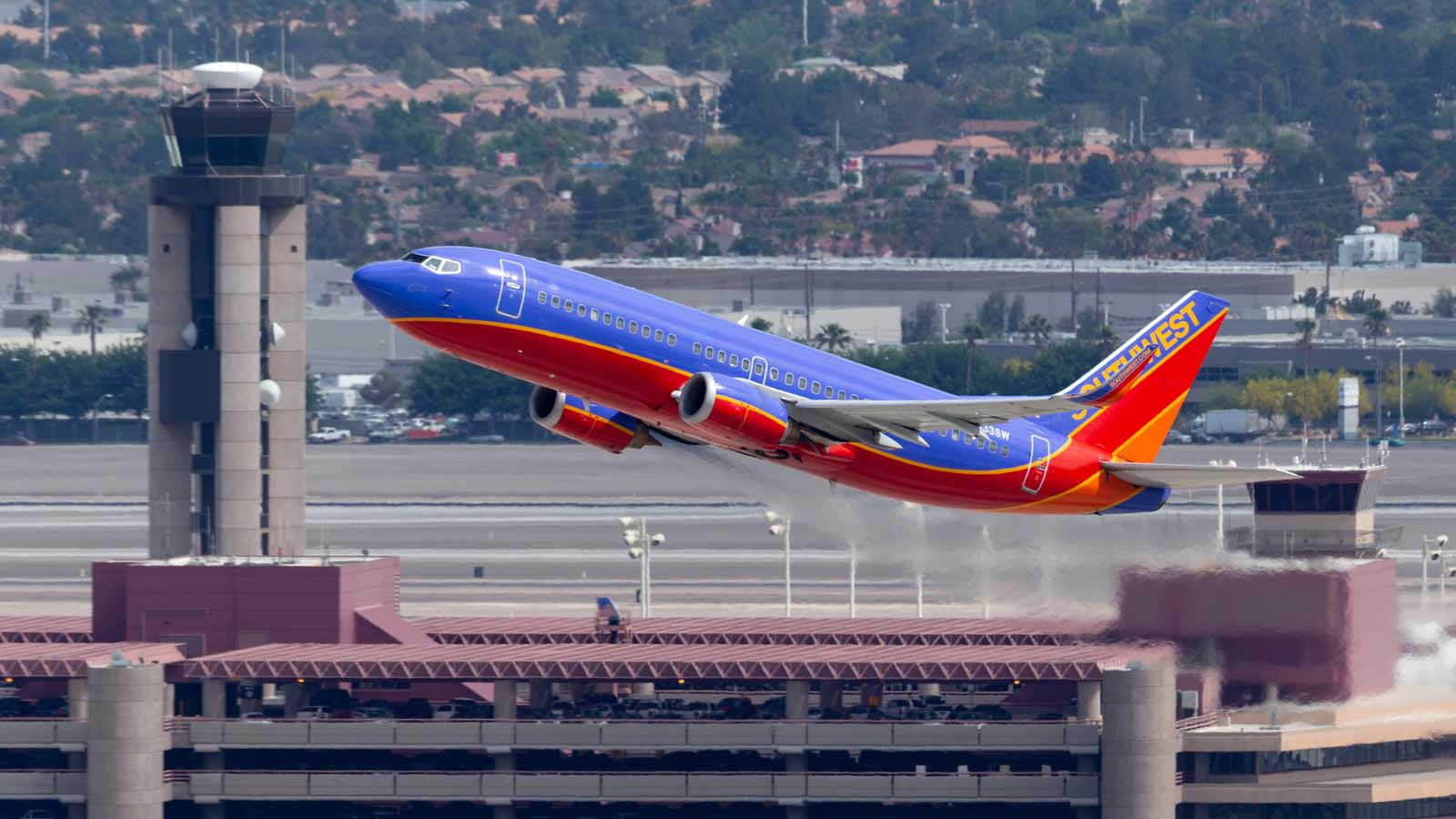When the novel coronavirus pandemic first escaped the borders of Hubei province, China, the broader travel industry took the brunt of the damage. However, recent photos of packed airliners suggest that the travel industry is back. Is this a sign that it’s time to invest in Southwest Airlines (NYSE:LUV) and LUV stock?

In short, no. While we’d like to believe that states gradually reopening their economies will magically restore demand, the situation is much more complicated.
For example, going back to those images of air passengers packed in like sardines, New York Times contributor Niraj Chokshi has a very logical explanation: airliners are simply eliminating a majority of their flights. Therefore, more passengers fly fewer routes, resulting in the congestion.
In other words, those photos are smoke and mirrors. Airliners like Southwest are still very much distressed, making LUV stock a risky venture.
Naturally, those who have to fly don’t like the idea of sitting next to hundreds of strangers, even if it’s a matter of financial necessity for the airline industry. As our own Chris Markoch explained, the new normal has created heightened demand for premium economy seating. And to respond to this demand, Southwest does indeed offer such an option.
However, Markoch points out that the company is “a little behind the curve” relative to other carriers, such as United Airlines (NASDAQ:UAL) and American Airlines (NASDAQ:AAL). That’s not surprising because Southwest has always appealed to people’s budgets first. Passengers who want to pay more for premium services aren’t exactly the discount leader’s primary customers, leaving some questions for LUV stock.
The Economy Is Still a Problem for LUV Stock
Early into this crisis, the biggest concern frequent fliers had was contracting Covid-19. Even before the pandemic, everybody knew that boarding an airplane was a biological crapshoot. With so many people from all over the country (or the world) crammed into a tight space, you’re bound to catch something eventually.
Despite states beginning the slow process of restoring some semblance of normalcy, fear remains. 83% of Americans say they are concerned removing stay-at-home orders and social distancing restrictions will lead to an increased number of infections. But many also find themselves stuck with the impossible decision of picking either health or livelihood.
Over a long enough time frame, neglecting one will impact the other. However, when it comes to flying, if you don’t have to do it, you don’t. Out of the tough choices we’ve had to make during the pandemic, this one is a no-brainer.
Therefore, it’s imperative for the viability of LUV stock that the coronavirus fades as quickly as possible. But should that happen, I’m afraid the airline industry would still have a long road ahead. Because once the health crisis fades, we’ll likely still have to deal with an economic calamity.
According to the latest jobless claims report, 2.4 million Americans sought unemployment benefits. Over a nine-week period, nearly 39 million workers have filed for aid.
Media pundits will tell you that the silver lining in this utterly terrible data is that the rate of those seeking benefits have declined conspicuously. Mathematically, this is correct. But contextually, this last jobless claims report is probably the worst.
I say this because now we’re talking about claims from high-paying jobs. When the coronavirus first impacted our economy, the service industry (restaurants, hotels, movie theaters) all shut down at roughly the same time; hence, the huge spike in late March/early April.
Those service sector jobs are now beginning to be refilled as states reopen. Logically, the bulk of the new initial claims are coming from industries which have previously escaped the turmoil. And if well-paying, middle class jobs are now getting the axe, that is not good news for LUV stock, particularly because those consumers are Southwest’s bread and butter.
Waiting It Out Is Still the Smart Play
The way I see it, airliners have two big unknowns facing them: when will passengers feel biologically safe flying and when will they feel economically safe about purchasing tickets?
If you think about it, this right here proves how ugly the sector looks today. In any other circumstance, being asked just one of these questions would be enough to deter most investors. Today, Southwest and its ilk have their own impossible dilemma to address.
Though I’m bearish on the outlook for LUV stock in the near-term, I will concede that speculators, if they get it right, stand a chance of gaining massive profits. Plus, this industry could turn into a game of musical chairs. If so, Southwest’s comparatively robust financials could buy it some critical time.
Ultimately though, most investors want to limit their variables. Certainly, they want to limit or eliminate paradigm-shattering ones. Unfortunately, Southwest, alongside sector competitors, is gazing into the abyss. Until we get a firmer picture of what we’re up against, I believe sentiment will be negative for LUV stock.
A former senior business analyst for Sony Electronics, Josh Enomoto has helped broker major contracts with Fortune Global 500 companies. Over the past several years, he has delivered unique, critical insights for the investment markets, as well as various other industries including legal, construction management, and healthcare. As of this writing, he did not hold a position in any of the aforementioned securities.
